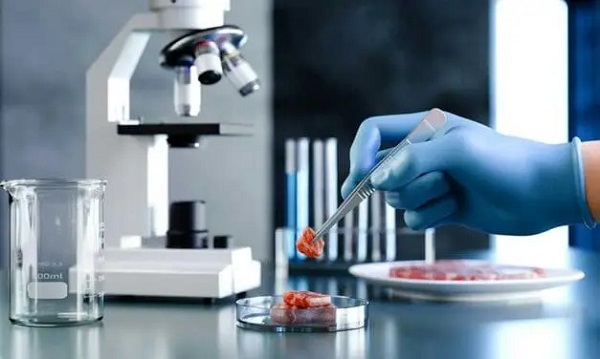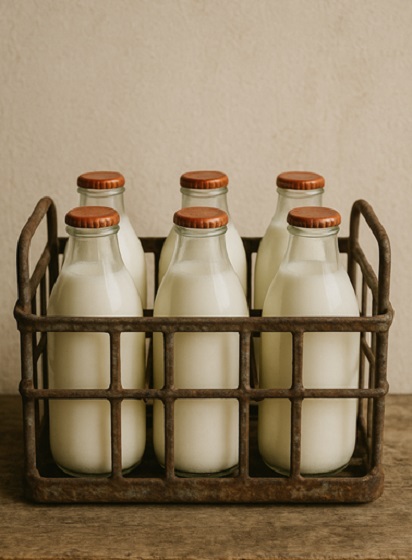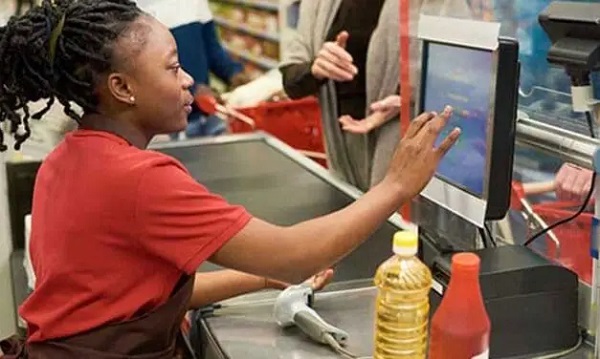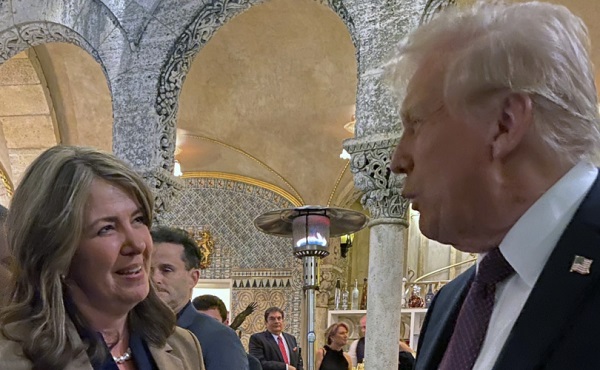Food
RFK Jr.: Nutrition must be at core of medical training

Quick Hit:
Health and Human Services Secretary Robert F. Kennedy Jr. is urging medical schools to make nutrition a core part of physician training. In a Wall Street Journal op-ed, he said the Trump administration will support reforms to combat the chronic disease epidemic driven by poor diets.
Key Details:
- RFK Jr. warned that chronic disease, fueled by poor nutrition, kills 7 in 10 Americans and consumes nearly 90% of the $4 trillion healthcare budget.
- He blasted medical schools for providing an average of only 1.2 hours of nutrition training per year, with three-fourths offering no required clinical nutrition classes.
- Kennedy announced that with Education Secretary Linda McMahon’s support, the Trump administration will push accrediting bodies and licensing boards to overhaul standards and mandate robust nutrition requirements.
Diving Deeper:
Kennedy opened his op-ed by drawing a comparison to the Covid-19 pandemic, noting that in 2020 telehealth expanded by 154% in just weeks. “That rapid pivot showed us a truth too often ignored: When we recognize a crisis, the medical sector can adapt overnight,” he wrote. Yet, he warned, the system has shown “refusal” to act with similar urgency against what he called a “far greater, longer-running crisis: the chronic-disease epidemic.”
The statistics Kennedy cited are sobering. According to his piece, heart disease, diabetes, and obesity are diet-related illnesses that claim more than 500,000 preventable deaths annually. “Poor diet fuels more than 500,000 preventable deaths annually from heart disease, stroke and diabetes. The science is indisputable, and the void is clear,” he said, pointing to a “paltry” average of just 1.2 hours of nutrition education for medical students.
Kennedy criticized accrediting bodies for “looking the other way” while physicians graduate without the knowledge to guide patients in lifestyle and dietary change. He stressed that nutrition counseling, when applied properly, can “prevent and even reverse chronic disease.” For that reason, he argued, future doctors must be equipped to “assess risk, guide lifestyle change, provide nutritional counseling, educate patients and address environmental factors, with nutrition education as the most proven and powerful tool.”
The reforms Kennedy outlined are sweeping: prerequisites for premed students, nutrition questions added to the MCAT, new standards for preclinical and clinical nutrition training, specialty-specific residency requirements, and expanded testing of nutrition knowledge on licensing exams. “We expect public commitments from each organization to make a priority of nutrition education, establish competency-based evaluation tools, and create sustainable faculty-development programs,” Kennedy wrote.
He concluded with a blunt warning: “The chronic disease epidemic is the most urgent and costly health crisis in America today. We can’t afford another decade of delay.” According to Kennedy, embedding nutrition at the core of medical education is a necessary step “to equip the next generation of doctors with the tools to restore the health of our nation—to make America healthy again.”
Agriculture
Lab-made food won’t win over Canadian shoppers

This article supplied by Troy Media.
Would you eat ice cream made from recycled plastic?
Producing butter without cows, pastures or crops—using only carbon and hydrogen synthesized in a laboratory—sounds like science fiction. Yet in an era of climate urgency and resource constraints, it is being framed as the next frontier in food innovation. A new wave of philanthropists and investors is betting on disruptive technologies to reimagine how we eat.
One such player is Savor, a Chicago-based company partly backed by Bill Gates, who has become a prominent supporter of climate-focused food startups. The firm says it has created a product indistinguishable from traditional butter.
Unlike margarine, made from plant oils such as soybean or canola, this butter contains no animals or crops. Its fat molecules are built in a lab from carbon dioxide captured from the air and hydrogen drawn from water, processed through heating and oxidation. The result mimics the molecular structure of fats found in beef, cheese or vegetable oils, without a single acre of farmland.
Savor claims its butter would have a far smaller environmental footprint than traditional dairy. Commercially, the company is targeting a market launch within 12 to 18 months, likely at a premium comparable to organic butter. On nutrition, however, the company has said little. That leaves a larger question for consumers: will lab-made foods ease the strain of record grocery bills or simply add another pricey product?
Molecular agriculture, sometimes called synthetic or cellular food production, means building foods molecule by molecule in a lab instead of growing them on farms. It has gained traction across categories from meat to seafood to coffee. These products are marketed as climate saviours, but what really drives consumer choices, labelling, price, taste and nutrition, often comes second.
Sometimes the race for novelty veers into the absurd. In 2023, a UK company claimed it could make ice cream from recycled plastic. One has to wonder how far we are prepared to go in the name of saving the planet. And novelty isn’t the only risk: history shows that even once-celebrated food science can backfire.
Trans fats, for example, were once hailed for improving texture and shelf life, only to be banned after their damage to public health became undeniable.
This points to a deeper cultural and economic tension. Food is not simply about producing calories with minimal resources. It is also an expression of culture, heritage and pride, rooted in centuries-old traditions. According to the Food Sentiment Index published by the Agri-Food Analytics Lab at Dalhousie University earlier this year, just nine per cent of consumers cite the environment as their main purchase driver.
Cellular and molecular agriculture has its place, but it must be guided by the right motivations. Efforts that play God or lean on eco-authoritarian narratives risk alienating the very consumers they hope to attract. Credible pathways must integrate the cultural, economic and sensory dimensions of eating. In Canada, this connection is especially strong in dairy and agriculture, which remain both economic pillars and cultural touchstones.
The future of food will not be defined by lab breakthroughs alone. Success will hinge on taste, transparency, affordability and respect for tradition.
In the end, not all of us aspire to eat like Greta Thunberg.
Dr. Sylvain Charlebois is a Canadian professor and researcher in food distribution and policy. He is senior director of the Agri-Food Analytics Lab at Dalhousie University and co-host of The Food Professor Podcast. He is frequently cited in the media for his insights on food prices, agricultural trends, and the global food supply chain.
Troy Media empowers Canadian community news outlets by providing independent, insightful analysis and commentary. Our mission is to support local media in helping Canadians stay informed and engaged by delivering reliable content that strengthens community connections and deepens understanding across the country.
Business
It’s Time To End Canada’s Protectionist Supply Management Regime

From the Frontier Centre for Public Policy
Senior Fellow Brian Giesbrecht says it’s time to stop coddling millionaire dairy barons. Supply management drives up grocery bills, blocks trade and makes Canada a global joke. Australia fixed it—we can too.
Canadians are paying the price for political cowardice
Canada’s outdated supply management system forces the average Canadian family to spend $500 a year to protect a small group of wealthy dairy producers, most of them millionaires. This protectionist regime enriches a few at the expense of many, drives up food prices and undermines Canada’s credibility in trade negotiations. It no longer fits the times, and it has to go.
Let’s be clear: this isn’t about attacking dairy farmers. Most are hardworking, conscientious people who’ve built their lives around a system they didn’t create. They rise early, work long hours, rarely take holidays and deserve fair compensation if the system is dismantled. But good intentions don’t justify bad policy.
Under supply management, the government tightly controls how much dairy, poultry and eggs Canadian farmers can produce and imposes steep tariffs—sometimes more than 400 per cent—on imported products to limit competition. The result is artificially high prices, limited consumer choice and retaliatory tariffs from other countries.
This system, once designed to protect small family farms, is now dominated by fewer than 10,000 large operations, many worth millions. It no longer serves its original purpose, yet it remains in place because of political cowardice. Pierre Poilievre and Mark Carney both know the system is flawed but won’t challenge it. Why? Because it’s popular in Quebec, a province with significant electoral influence. No party wants to risk alienating those voters.
Australia and New Zealand once faced similar challenges. They phased out their systems, fairly compensated farmers through levies and built globally competitive dairy sectors. We can too. Trump’s return to power may force our hand, but it also gives us an opportunity to act on what we should have done long ago.
Even without outside pressure, the inefficiency is clear. Every year, billions of litres of milk are dumped when quotas are exceeded. At the same time, Canadian companies like Saputo are forced to relocate abroad to reach global markets. Our artisan cheese producers are trapped in a small domestic economy while foreign markets block our exports in retaliation for our own protectionism.
The hypocrisy is glaring. We call for free trade but defend a system that imposes up to 400 per cent tariffs on imports. Our global partners are right to scoff.
Trump did. In a social media post, he wrote: “Canada is a very difficult country to TRADE with, including the fact that they have charged our Farmers as much as 400 per cent Tariffs, for years, on Dairy Products.” And in his July 10 letter announcing 35 per cent tariffs on Canadian goods, he added: “Canada charges extraordinary Tariffs to our Dairy Farmers—up to 400 per cent—and that is even assuming our Dairy Farmers even have access to sell their products to the people of Canada.”
This isn’t just an American objection. High-quality dairy from France and Germany can’t be sold in Canada because of our import barriers. Their governments respond by blocking our dairy exports. Canada loses jobs, investment and credibility.
Some defenders claim foreign dairy is unsafe. But countries like France and Germany have food safety standards as strict as ours. And Canada already has legal mechanisms to block substandard imports. We don’t need tariffs for that.
Former Liberal MP Martha Hall Findlay said it plainly: supply management is a dead end. So did Maxime Bernier, who made it a central issue during his bid for the Conservative leadership. The dairy lobby made sure he didn’t win. And we’re still stuck.
Now, all parties have voted to exclude supply management from current trade talks. We are entering negotiations that demand fair treatment while protecting one of the most unfair systems in the developed world. It’s a national embarrassment.
But this can change. A phased buyout funded by a modest, temporary levy—not taxpayer dollars—could end supply management and open our dairy sector to global opportunity. Australia and New Zealand proved it works. Their citizens don’t pay $10 for butter or yogurt. Neither should we.
It’s time to stop protecting the past. Dismantle the system. Free our producers. Lower grocery bills. Restore our credibility.
Maxime Bernier saw it in 2017. Trump is saying it again in 2025.
This time, we’d better listen.
Brian Giesbrecht is a retired judge and senior fellow at the Frontier Centre for Public Policy.
-

 Business2 days ago
Business2 days agoMounties, Overstretched and Overmatched by Foreign Mafias, No Longer Fit for Service
-

 Crime2 days ago
Crime2 days agoHigh-Profile PRC Fentanyl Financier Evades U.S. Extradition in Mexico City Tunnel Escape
-

 Business1 day ago
Business1 day agoB.C. Lottery Corp Fined $1M in First Casino Laundering Case Since Cullen Report
-

 Housing2 days ago
Housing2 days agoPBO Refuses to Model Liberal Housing Promise
-

 Business1 day ago
Business1 day agoAll of B.C. now subject to ‘Aboriginal title’ claims
-

 Business1 day ago
Business1 day agoCarney’s tariff blunder cost you at the checkout
-

 Alberta1 day ago
Alberta1 day agoAlberta deficit projected to hit 6.5 billion – up 1.3 billion after first quarter
-

 Business2 days ago
Business2 days agoCracker Barrel and the Power of Conservative Boycotts







